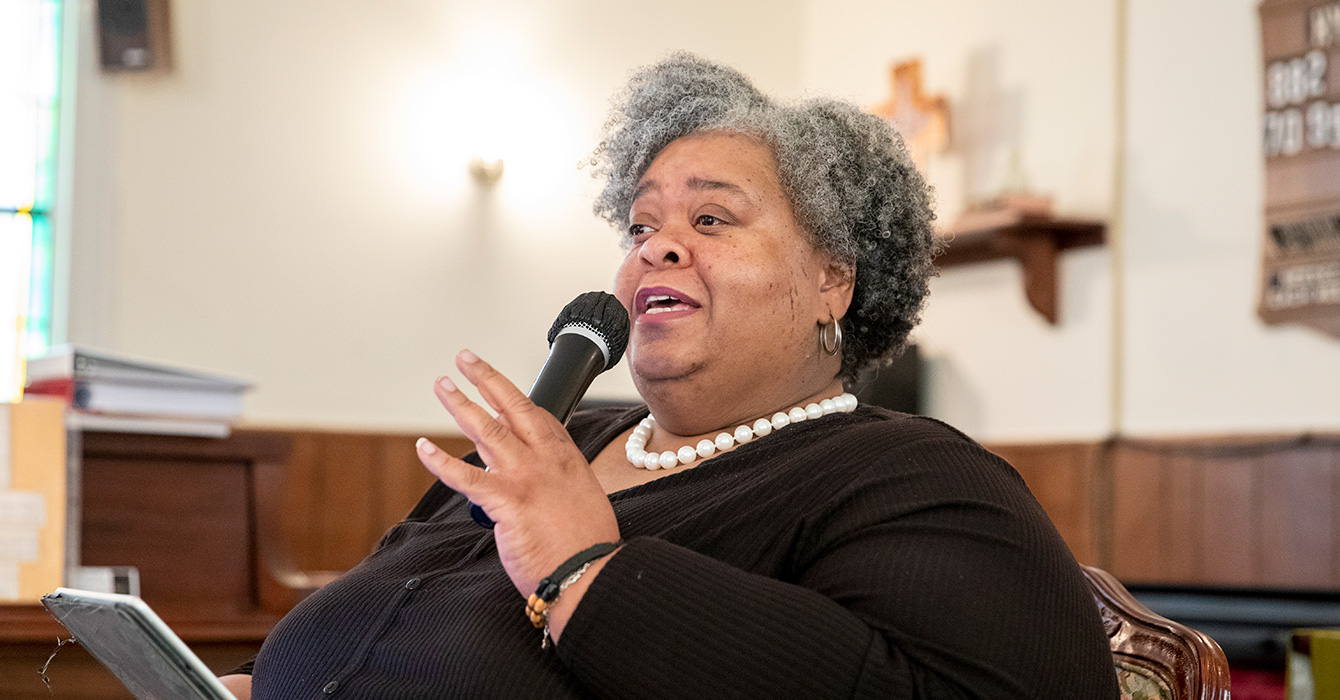A friend recently came for a weekend visit, one of those impromptu "I found a cheap ticket!" get-togethers that kept us laughing and talking late into the night. In college, we shared textbooks and went to church together; over the years, we have helped each other face fears about marriage, singleness, childbirth, the death of parents, and work and vocation.
So when she told me that she was struggling at work and needed to find something that didn't "kill her soul," I was not surprised. I knew what she was talking about. I, too, have felt the ways that work can kill the soul. I have been on the receiving end of a pink slip. I have stared at a computer screen for hours, worried about having too many PowerPoint slides in a lecture that already felt flat and lifeless.
For me, "vocation" and "work" are loaded terms. The first suggests freedom, meaning and joy; the other, a paycheck. My parents logged long hours as bartenders and office workers. My father, whose tips at the bar bought our groceries, would often tell me, "Follow your dreams, kid. Don't be like me."
After my college graduation, I thought "following my dreams" meant standing in front of a classroom on the South Side of Chicago. Then I thought it meant standing in a college classroom, teaching writing. Then I got married and moved cross-country and had a baby. But when my job fell through and my husband and I both scrambled to find work, my father's advice became a luxury I could not afford. The gap between our mounting bills and our dwindling savings became more pressing than following the confusing trail of my dreams.
Nancy Nordenson, in her book "Finding Livelihood: A Progress of Work and Leisure," says that the realities of work and living render Frederick Buechner's famous words on vocation -- "The place God calls you to is the place where your deep gladness and the world's deep hunger meet" -- problematic: "While Buechner's words … offer a starting point for dreams and plans when the future is in front of you and the choice is yours, who but a very small minority can find that exact intersection and from it feed a family?"
Nordenson's quibble with Buechner is not about mere practicality. For Nordenson, too, "vocation" and "work" are loaded terms. Work that one loves, Nordenson writes, is something to be grateful for -- but work also has what Nordenson calls a "shadow side." Work weighs on us: our tasks, our bosses, our congregations and our inboxes all make demands on our time, attention and energy. And those demands can be both fair and unfair. I once had a supervisor dress me down for throwing away lettuce from a meat-and-cheese tray.
"I could have made a salad from that! I knew I should have been watching you," she said. Though she tried to sound playful, her voice had an edge that betrayed a deep belief in my incompetence.
To be honest, she was right. At that particular job, I was incompetent. I lost files, turned in receipts too late and once hid in my office during an important student meeting, hoping that I could disappear behind my desk.
Don't we all have stories like that? But the embarrassment of doing a job poorly is not the full measure of work's shadow side. I think of another dear friend who, despite her great pastoral gifts, was pushed out of a ministry position she loved by a manipulative boss who told her that he was doing what was "best" for her by not renewing her contract. I think of my father, who suffers from severe carpal tunnel syndrome, his hands shaky after years of uncorking wine, so that glasses now slip from his once-sturdy grip.
Work's shadow side is not just about being treated unfairly. It is about having and losing opportunity, about watching ourselves be stretched thin by the clock and the contract's stipulations. It is about doing what keeps our bills paid while waiting for a response to our hundredth job application. It is about what we lose when work that once made us glad is stripped of its vitality. What we lose when work that we love -- and need -- is taken from us.
Nordenson's own employment experience is familiar to anyone who has wrestled with the tension between work and vocation. A medical writer, Nordenson began an MFA program scant months before her husband suddenly lost his job, throwing her into a similar scramble to make ends meet. Her book chronicles a lifelong fascination with theories of work and how they have actually played out in her life. Through image, story and association, Nordenson's collection of essays creates a lyric meditation on the nature of seeking livelihood, what Nordenson refers to as "the way of one's life [and] the sustenance to make that way possible."
For Nordenson, seeking livelihood is a weaving together of being something -- a writer, a preacher, a (fill in the blank) -- and living, with no separation between the two. Livelihood, according to Nordenson, allows for total union between our working selves and our private selves, between what we do and who we are.
Isn't this what we all desire? At home, I scroll through job listings for writing professors. My heart leaps at seeing syllabus requirements; I make up titles for the classes I would teach. But then my toddler son climbs onto my lap and I recall the lifeless PowerPoints, the feeling of dread that accompanied most knocks on my office door.
"I yearn," writes Nordenson, "for the inner equipping of freedom and play, time for my soul to lift and expand to all that there is, even while on the path of work. I want a place at the table where data meets humanity. I want to sing while collecting my pay."
This is also what we want -- the place at the table, the song and the pay. The recognition not only that we have worth but that life beckons to us at the edges of our working days, our gladness and the world's hunger rooted in a longing for what Nordenson calls "the integrated transcendent life." Not a transcendence that can be discovered in self-help books or watered-down spirituality, but one that recognizes, like Irenaeus, that "the glory of God is man fully alive."
For Nordenson, being fully alive means encountering the work we do as a search, as Studs Terkel wrote: "a search … for daily meaning as well as daily bread, for recognition as well as cash, for astonishment rather than torpor." Nordenson seeks to "cast [her] net on the side of astonishment," to find livelihood as well as make it.
I think about the disciples spotting Jesus on the beach at the Sea of Tiberias; I think about his command, "Cast the net to the right side of the boat, and you will find some [fish]" (John 21:6 NRSV). I try to picture their amazement and their confusion, their belief and their unbelief, the nets overflowing.
Perhaps the side of astonishment is "the right side of the boat." Perhaps it is the place of abundance where life -- and livelihood -- can be found.









